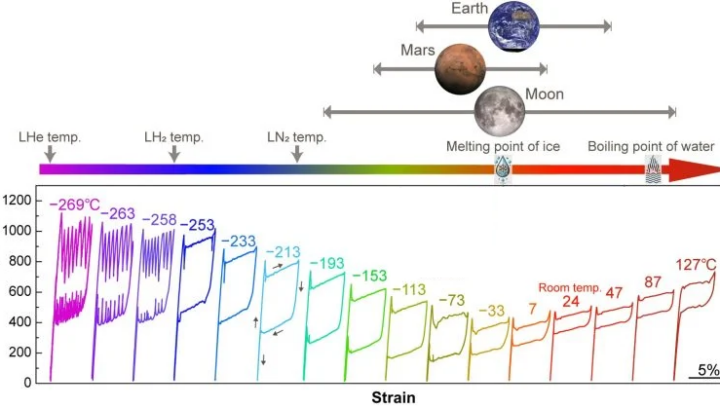A new Ti-Al-Cr-based alloy has been developed by a research team from the laboratory of prof Ryosuke Kainuma at Tohoku University in Sendai, Japan. This alloy is unique in that it exhibits so-called superelasticity—large deformability due to phase transformation—across an exceptionally wide temperature range. Specifically, its functional properties remain effective from temperatures near that of liquid helium (-269 °C) up to temperatures exceeding the boiling point of water (127 °C). Unlike conventional shape-memory alloys, where superelasticity is observed only within a narrow temperature window, the new Ti-Al-Cr alloy is therefore a promising candidate for micro-mechanical applications in space programs. The research, which was published last week in the prestigious journal Nature, also involved Pavla Stoklasová and Tomáš Grabec from Department D5 – Ultrasonic Methods. They conducted measurements of the elastic constants of the newly developed material at low temperatures using an ultratransient grating spectroscopy method developed at the Institute of Thermomechanics.
Fig.: Mechanical responses (stress-strain curves) in the newly developed alloy compared with surface temperature ranges for Earth, Mars and Moon (C) Nature Portfolio 2025.

